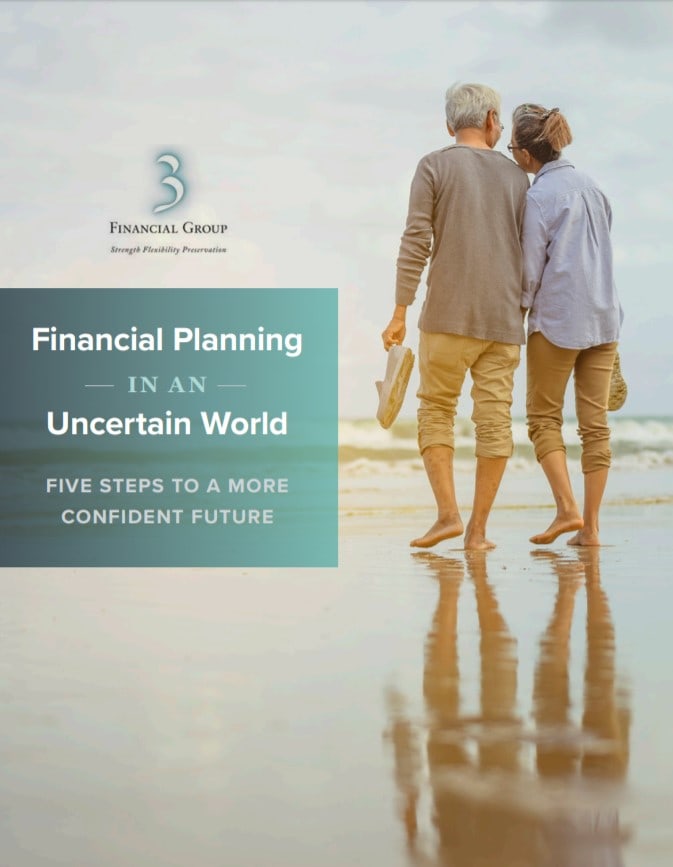Your financial plan and your estate plan should complement each other. After all, both of these plans center around the security of your future and your loved ones’ future. While a financial plan and an estate plan are distinct, they are both active plans that need regular maintenance to adjust for life goals and new developments such as retirement plans, a new child, a new home, changes in relationships, or a new career. In this blog, we will discuss why your financial and estate plans are crucial and why they should be connected.
What is a financial plan?
A financial plan is your living plan – the adaptive strategy based on your goals to guide you financially throughout your lifetime. It reflects not only your current financial situation but also your dreams for the future. With careful consideration and strategic adjustments, it serves as your financial compass, ensuring that you navigate through the ups and downs of economic trends and personal milestones with confidence and clarity. By aligning your financial actions with your goals, a well-crafted financial plan empowers you to make informed decisions, paving the way for financial security and peace of mind.
However, for women and the LGBTQ+ community, a good financial plan isn’t as simple as following a one-size-fits-all strategy. It must take into account the unique challenges and systemic barriers that these groups face, such as pay inequity, longer life expectancies, and legal uncertainties. Financial planning catered to women and the LGBTQ+ community provides an inclusive framework for building resilience against financial vulnerabilities while maximizing opportunities for growth and security.
What is an estate plan?
Just as a financial plan navigates the present and future, an estate plan thoughtfully addresses the inevitable, offering peace of mind that your affairs will be handled and your family will be taken care of. It involves making critical decisions about your healthcare and finances, safeguarding not only your wealth but the well-being of those you care about and the causes you support. It includes your wishes for how your assets should be distributed and your values passed on, ensuring that your financial footprint reflects your life’s work and principles.
An estate plan is your end-of-life plan, your legacy. At the end of your life, there are two time periods that are most risky for you and your loved ones: incapacity and death.
Incapacity is the time when we are unable to make financial and medical decisions for ourselves. This could happen because of being in a coma or developing a degenerative disease like dementia or Alzheimer’s. An estate plan can ensure someone you trust is able to step in for you to make those financial and health decisions. That plan can keep your family out of court and make sure your bills get paid.
After death, there are a myriad of issues to consider. Who will get our stuff? What kind of funeral arrangements do we want? How do we take care of the people and charities we love and support? How do we make this as easy as possible on the people we leave behind? Who will take care of the children? And on and on.
An estate plan can answer all of these questions and more. A solid and thoughtful estate plan can ease stress for your family during these challenging times, especially in the face of widowhood, unexpected life events, or when navigating the complexities of life insurance and mapping out the care of your loved ones. Life insurance can act as an important component of this plan, offering financial protection and stability to your family in your absence. By designating beneficiaries and assigning powers of attorney, you provide a clear directive on who should manage your financial affairs, who should make healthcare decisions for you, what kind of medical care you want, and how your assets should be distributed. These preparations secure your family’s future and mitigate the burden of uncertainty during difficult times as an expression of your love and responsibility.
How do financial and estate plans work together?
Combining your “living” plan with your “end-of-life” plan creates a comprehensive approach to managing your wealth that spans your entire lifetime and beyond. For instance, beneficiary designations of your retirement accounts (e.g. 401(k), 403(b), IRAs) need to be coordinated to keep up with evolving tax laws. With retirement accounts, you can choose to name individuals or charities directly as beneficiaries or you can name your trust. Each of those choices has distinct advantages and disadvantages that should be considered and coordinated between your financial plan and estate plan. The Secure 2.0 Act is a recent example that dramatically changed how these accounts are handled after death. If a person’s estate plan is still drafted with outdated laws in mind, their plan might create unintentionally negative consequences.
Beyond retirement accounts, every asset you own – from your house and car to investments and other properties – requires consideration in your estate plan. Deciding how these assets are handled and distributed after you pass away is crucial in maintaining stability and security for those you leave behind. Through documentation such as wills, trusts, and beneficiary designations, you can dictate the specifics of who receives what, minimizing uncertainty and potential conflicts among survivors.
Lastly, integrating your financial and estate plans allows you to address tax implications and potential healthcare costs and considerations, creating a solid protection strategy for your estate. By taking these steps, you safeguard your assets and provide a foundation of financial stability and emotional security for your family, ensuring that your legacy of care and foresight continues long after you’re gone. This holistic approach underscores the importance of viewing your financial and estate plans as interconnected elements of a broader strategy designed to support and protect you and your loved ones at every stage of life and beyond.
Prepare for Today, Plan for Tomorrow with 3FG Law
In the journey of life, where uncertainties are the only certainty, the significance of having both a current financial plan and an estate plan cannot be overstated. These plans are a testament to your foresight and commitment to your family’s well-being and future. Together, these plans ensure your financial legacy aligns with your values and wishes, providing guidance and stability for your loved ones even in your absence.
Our team stands at the crossroads of estate law and financial planning, embodying the role of a partner, ally, and expert in navigating these complex landscapes. With our expertise and compassionate approach, we are dedicated to helping individuals and families craft tailored financial and estate plans that reflect their unique circumstances, aspirations, and concerns, especially women and the LGBTQ+ community. Our commitment to excellence and integrity makes us a trusted partner in securing your legacy and ensuring the well-being of those you cherish most.
Let us help you navigate the present and prepare for the future, preserving your legacy and protecting your family. Contact 3FG Law today to start the conversation about estate planning. With us by your side, you have a champion committed to your peace of mind and the lasting security of your loved ones.
COD00000187/April 2024


